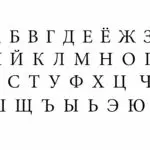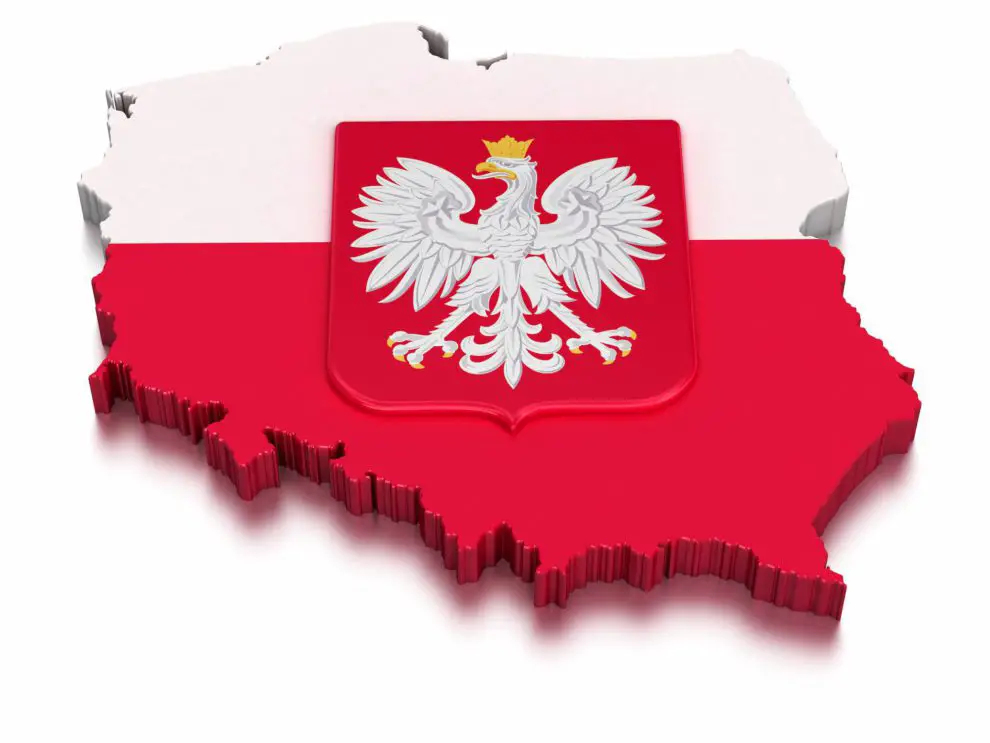All surnames have stories about their origin. Those stories are keys to one’s identity, encrypted with specific features related to family history, social rank, ethnicity etc. Consequently, the way they are formed is not random.
Since the Polish last names are no exception from this observation, we are going to categorize them into a few groups to make our task easier.
In the following article, we are going to give you a short explanation about how Polish last names work, show you a list of Polish last names and help you learn their meaning.
Table of Contents
Why Do Polish Names End in ‘Ski’?
In fact, these suffixes are common among all the Slavic ethnic groups (see Slavic names article for a more detailed discussion).
In Poland, the emergence of –ski started in the 13th century with the aristocracy. The last names of landlords were mainly based on the names of places they lived in (or owned land).
The suffix ‘ski’ was added for the purpose of separating the wealthy families from those who are of a lower status.
A good example of this practice is the Polish surname Tarnowski (from the city of Tarnow)
This trend, which created a lasting connection between the landlords and their town gave rise to another phenomenon among the popular Polish last names – the toponymic policy of the Polish surname formation.
Good examples of how this policy works are the following last names: Wrzesiński (coming from the town of Września), Krakowski (coming from the town of Kraków), and Brodowski (coming from the town of Brodowo.)
Because these last names were meant to represent a high status, they became quite desirable. By the end of the 15th century, they became frequent among the working class people and villagers.
That is when “the Ski pandemic” begins, with Kačmarek (a small restaurant owner) becoming Kačmarski, Kowal (a blacksmith) turning to Kowalski and Skovron (a lark) becoming Skovronski.
This way, Ski lost its primary meaning and became one of the most used suffixes in the Polish language.
There are a bunch of Polish surnames based on the occupations of their holders (most frequently given surnames were Kowalski and Kowalczyk, both derived from Kowal which is a Polish word for a blacksmith).
Kowalczyk is the second most common last name in Poland.
Prefer to learn in a video format? Watch the below:
Do All Polish Last Names End in Ski?
The answer is no. While the last names ending with ski are linked with the aristocracy, the surnames formed of casual nouns throughout history are quite frequent among the Polish people.
Most of the Poles don’t have an aristocratic background which explains why the answer to this question is negative.
Polish Last Names Derived from Nouns
Polish last names derived from nouns are often made of nicknames that are related to one’s occupation, a distinctive feature of their physical appearance, or their temper.
For instance, one of the 100 most common Polish surnames nowadays is Nowak. Nowak signifies someone new, who recently came to live among the Poles.
Other good examples are Bystron (which is derived from the word ‘clever’), Byala (the root of this word is the word ‘pale’), and Glovach (which comes from the word ‘head’).
Polish Occupational Surnames
Among the top Polish family names, those derived from their occupation are very special.
As we already mentioned, by learning the origin of the aristocratic suffix, occupational surnames were in use well before this trend arose.
We talked about two surnames which are derived from the word ‘Kowal’ (a Polish word for a blacksmith) as top examples of this custom.
Besides the previously mentioned surnames, you may easily find a bulk of surnames given to people by using an origin principle. Those surnames are also called cognominal surnames [1].
Before they become someone’s surname, they serve as a nickname.
Let’s go back to the occupational surnames. A nickname is occupational if it’s based upon the occupational feature of its holder.
Let’s see a short list with the most common Polish surnames derived from previous nicknames:
- the Młynarz last name – from the word młynarz which in Poland means a miller
- the Kuchar surname – from the word kucharz which is Polish for a cook
- the Garcarek last name – from the word garncarz which means potter in Polish
- the Krawczyk surname – from the word krawiec whish in Poland means a tailor
- the Szewczyk last name – from the word szewc (a shoemaker)
Polish Last Names Derived From Christian Names
Apart from the names that are derived from nouns, there are also surnames that fall into a ‘patronymic type’. Patronymic last names are mostly a combination of a male name (often a name of a Christian saint) and the suffix –vich ( this is very similar to the Russian tradition).
A single name can produce several last names. For example, the surnames Petrulevich, Petrashkevich, Petrkevich, Petrovich, Petrusevich are all derived from the name Petar. The same is possible with other Polish names, such as Szymon or Jan.
This names-based approach throughout history is done with the usage of the suffix –ski (Petrovski, Petraševski, Petražicki, Petracki, Petrušinski, Petrikovski).
Statistics confirm: surnames as Petrovsky (from the first name Petar, meaning ‘the son of Petar’), Szymanski (from the first name Szymon, meaning ‘the son of Szymon’), and Jankowski (from the first name Jan’) makes up 25 percent of all Polish last names [2].
Other Polish suffixes in use are -ik, -chik, -ak, and -chak
Polish Last Names Derived from Other Languages
Poland is an interesting country with a rich history. You really need to do a lot of research in order to understand how its naming system actually works!
There are a whole bunch of surnames that came from foreign languages. Many foreign last names are so well established within the Polish language that Poles don’t think of them as exclusively foreign.
Thanks to the German influence on Polish history, both first and last names of German origin are quite frequent among the people of Poland.
One may frequently hear surnames like Fiszer (which means a fisherman), Stern (which means a star), Hoffmann (which means steward), Richter (which means a judge), or Wajs (which is a German word for white.) among the Polish families.
Female Polish Last Names
Today, in Poland, it is a common thing to find a surname that has its male and female versions. For example, Kowalskaya is a feminine version of Kowalski.
It’s an interesting fact that from the suffixes used in the surname, one could deduce if the woman was married or not.
A girl or a woman that has never been married had the surname of her father with the suffix -uvna or -anka or -yanka, depending on the father’s surname. For example, Morava (the father) and Moravyanka (the daughter).
If the woman is married, her surname ends with -ova, -nya or -yna. For example, Nowak – Nowakova, Koba – Kobyna, Puhala – Pukhalina, etc.
This tradition is less dominant nowadays, but it still exists as a rule in the Polish language and is well known among the older generations.
A List of Most Common Polish Last Names
- Nowak – a Polish family name with 277.000 holders (give or take). This last name originates from the slavic word ‘nov’ which means new. The surname means someone new, someone of a different origin, or a man that recently came to live among the Poles.
- Kowalski – a second most often Polish surname with approximately 178.000 holders. It comes from the Polish word Kowal which means a blacksmith (this name also means that someone in the family used to be a blacksmith) Many English surnames end in ‘smith’.
- Višnjevski – around 139.000 Poles have this surname. Višnja is a Polish word that means cherry tree. This particular surname means “from the town of the cherry tree”.
- Vuichik – 126.500 (+/-). A patronym form, with ‘chik’ being the suffix and ‘vui’ signifying a wolf. One of the interpretations says that this Polish surname means “a son of a wolf”.
- Kowalczyk – Probably around 124.000. Similar as Kowalski, which means it comes from the word Kowal (a blacksmith). It has a different suffix (czyk) instead of ‘ski’ which makes it a patronym.
- Kaminski – around 120.500. A Polish family name that refers to a specific place. However, there are more than 60 villages in Poland with a name related to Kamien. It is a Polish word for stone.
- Lewandowski – 118 400. This is a very popular surname across Europe, because of the best Polish footballer of all time – the Bayern Munchen’s striker Robert Lewandowski.
This Polish surname has two meanings. It’s derived from the word ‘Lewandów’ which is a place in Poland, but it also means ‘lavender’.
- Dombrovsky – 117.500. Another name that refers to the place in Poland. Dąbrowa, meaas “an oak grove”. It is a famous Polish surname that is very special to people worldwide because of Dave Dombrowski – an American baseball manager of Polish origin.
The Bottom Line
It is always an exciting learning process (doing an in-depth analysis of words, especially when it comes to names). By learning the origin of surnames and their meanings, we often realize why a particular family has its last name. Polish last names are very common among Eastern European last names.
We hope that you enjoyed this article and that it made you like the Polish people even more!
Sources
- https://kehilalinks.jewishgen.org/Suchostaw/polish_patronymics_and_surname_suffixes.htm
- http://www.studentsoftheworld.info/penpals/stats.php?Pays=POL













